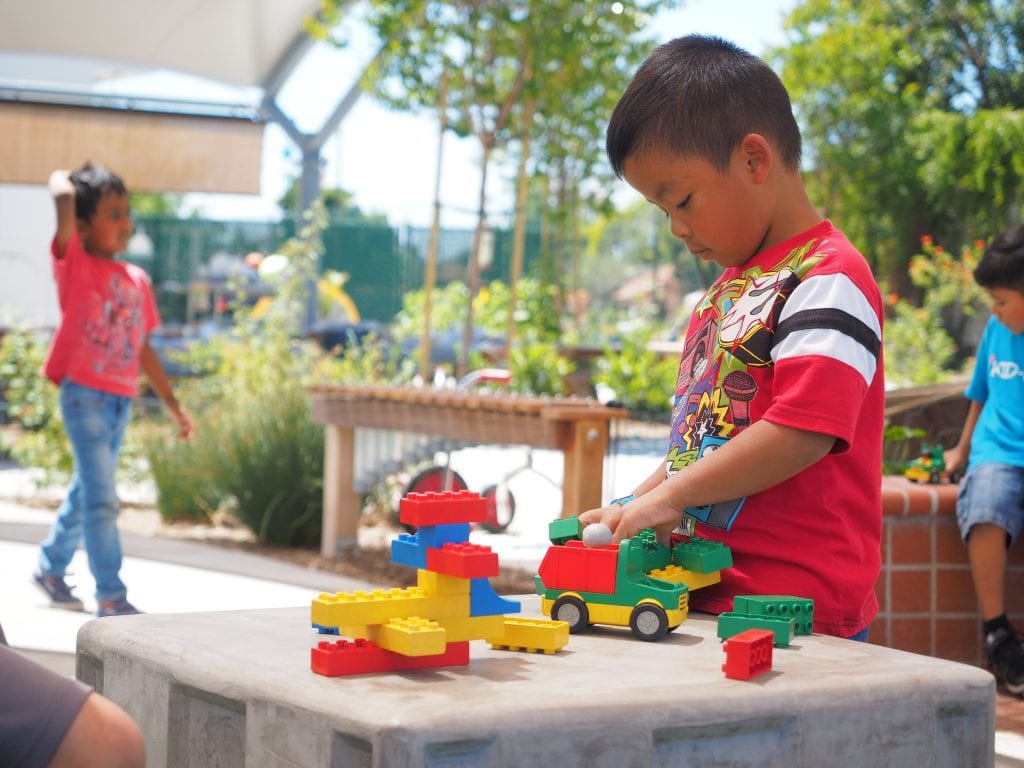
The use of coding is all around us – from online payments to photo-editing apps and food-ordering services. And there’s the field robotics, the backbone of manufacturing and our healthcare system. This era of COVID-19 has only illuminated our reliance on technology. Whether we’re fully on board or not, technology is the wave of the future.
Our children – no matter what age they are or what developmental milestone they are working toward – must have the opportunities to hone their talents, while also preparing for an even more technology-driven workforce.
Having many years of early childhood development and curriculum innovation experience, I’d like to share five activities to help prepare your preschooler for coding. Some of these activities may be more familiar to you than you realize!
1. Bead-making or block play: Using colored beads and blocks, have children create simple to complex patterns. Not only will this help them understand patterns and sequencing, it will also develop their perceptual motor skills, which allow them to better manipulate technology later on.
2. Table games/board games: Play a board game together or create your own! Coding involves spatial reasoning and logic. When you have children create their own game, you are allowing them to analyze and problem solve.
3. Map-making: Have your child draw a map on butcher paper using art materials you have at home. You can also make maps based on your environment, which will help them easily understand how to incorporate direction and location. Maps help children learn direction, position and sequencing, as well as directional language and movement strategies.
4. Scavenger hunt: Use items from around your house, or pick a theme for your child, such as finding items that start with the letter “B.” This helps children learn positional words and understand simple tasks equivalent to coding.
5. Read aloud together: Have children look for and identify patterns in the story. Identify where characters are problem solving and predict what will happen next. This teaches patterns and problem solving, as well helping kids become familiar with directional and sequential language.

Be resourceful, have fun and tailor the activities to your child’s interests. Whether you’re consciously setting aside time that is designated for “learning” or not, your child is always gathering takeaways in your interactions. These activities also promote a strengthened bond between the two of you, which is foundational to your child’s sense of self and whatever they choose to devote themselves to now — and later in life.
Looking for more STEAM (science, technology, engineering, art and math) activities to do at-home? From chess that promotes kinder-readiness, to “deep sea dives” for your budding marine-biologists, click here for a list of online courses and workshops, offered by the Long Beach Early Childhood Education Committee, a partner of Child360, to take your child’s at-home learning to the next level and ensure they have fun doing it!
Angel Walters is the VP of Assessment & Professional Development at Child360, a Los Angeles-based nonprofit that elevates the quality of early learning. She oversees the development and innovation of professional development services provided by Child360 to the early learning field, and strategically leads the Child360 quality improvement team who delivers assessments, trainings and technical assistance to early learning providers.
























